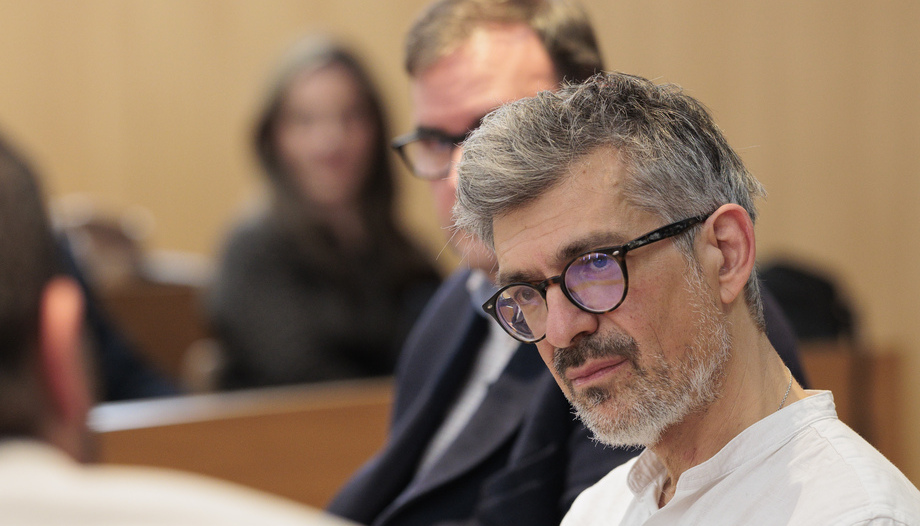On the afternoon of October 24, the postgraduate campus of the University of Navarra in Madrid was filled with people who came to listen to Fabrice Hadjadj, French writer and philosopher.
Hadjadj is the author of works such as "The Faith of Demons", "Paradise at the Door" and "Wolves disguised as lambs". In this latest book, the thinker reflects on the spiritual abuses in the Church and tries to unravel the causes of this evil.
During the Forum, organized together with the Master's Degree in Christianity and Contemporary Culture of the University of Navarre and Ediciones Encuentro, Fabrice had a conversation with journalist Joseba Louzao. The questions posed to the audience were diverse and profound, ranging from the infantilization of faith, to divine filiation and, of course, spiritual abuses.
Ambiguous categories
Hadjadj noted that some journalists have said that his book on spiritual abuse did not take sides with the victims. "I don't because there are already books that take that perspective. I have done something else, I have approached the issue from the side of the perpetrators. There is an easy position I want to avoid, which is to take the side of the victims. I am a Jew, but I have never wanted to take the side of the victims and I am not going to do it now. We are involved in a kind of victim religion: because I am a victim I am innocent. Because I am a victim what I say is the absolute truth. But, on the one hand, there is only one victim and innocent, which is Christ and, secondly, trauma can make one slip into a violent position as well."
In the last minutes of the conversation, Fabrice spoke of the relationship between victim and abuser, noting that in cases of spiritual abuse "the category of abuser and abused does not quite work." This differentiation is "more obscure" and forces us to ask ourselves the question, "What is our part in which there has been consent?"
In a spiritual father-son relationship, Fabrice explained, even if we can affirm that there is abuse on the part of the father, we must also recognize that the son consents in many cases to certain advances. And when we begin to discern what has happened, Hadjajd said, "we cannot think that whoever is a victim is directly innocent."
Compensation is not a cure
On the other hand, Fabrice pointed out that compensation is not enough to save the victims. These payments are solutions on a civil level that do not complete the spiritual conversion necessary for the person who has suffered abuse to be healed.
The intervention of Christ and his word is necessary, essential. A word, that of Jesus, that is purified, not like that of the victim or like the words we use to speak of abuse.
The purification of the word
In the same sense, "the word that is born of trauma is a word that also has to be purified". Purified and not only in what refers to the abuse suffered, but to the whole experience of the spiritual. "The evil that the spiritually abused person has suffered causes the very vision of that person's spirituality to be deformed," Hadjadj continued. Therefore, "we must listen to that word but we cannot forget the word of Christ and we must carry out the purification."
Christ's word also enables us to "remove all our ambiguities" regarding the categories of abuser and abused mentioned above. This is achieved by trusting in Jesus as the "victim who comes to save us".
Fabrice concluded his intervention by pointing out that we must "recognize that people who have abused may have been able to communicate real graces to people". In this sense, we must "keep the good, reject the bad and know that we are saved from the moment we recognize that we are not only victims.
Subscribers to Omnes magazine will be able to read a full report with all the details of the conversation with Fabrice Hadjadj in the new November 2024 issue. Those who do not subscribe to the magazine and would like to get the next issue can subscribe to here.








